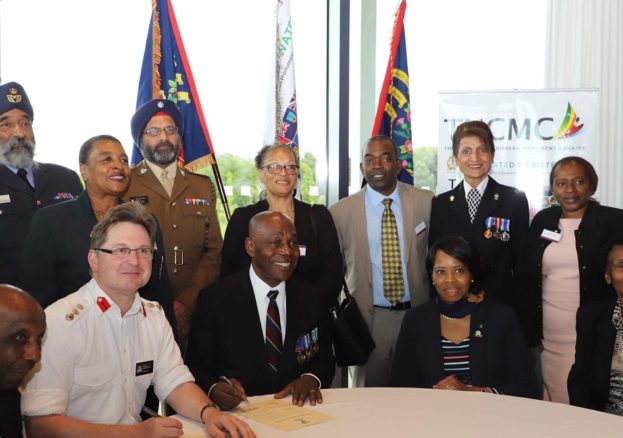
Black History Month plays a key role, raising awareness of the contribution black people have made to our history. The British Army supports the aims of Black History Month and we want to use our position in society to play a role in making British history more inclusive.
An important part of celebrating Black History is a re-examination of Britain’s Imperial past. Studying Britain’s reach into the world from the reign of Elizabeth I to the late 1960s is a liberating experience: British history then becomes a Commonwealth story as well. Casting the historical net too narrow strips away our multi-layered and challenging past dulling our understanding of the contemporary world. For instance, Professor Ashley Jackson argues British society’s failure to fully appreciate the role of the Commonwealth in the two World Wars and the wars’ impacts beyond Europe is because we view Britain as it is today, rather than in its historical role as the hub of an empire with global impact. What does this mean for Black History Month? Simply, black people have been playing a role in the formation and evolution of contemporary Britain since at least the reign of Elizabeth I.
Britain’s martial experience is no different. Caribbeans and Africans have been a widely documented part of Britain’s military since the American War of Independence. The frieze at the bottom of Nelson’s Column depicts a black sailor. For the Armed Forces he is a metaphor of the length, breadth and commitment of service to the Crown that men and women from Africa and the Caribbean have made. They have fought in all three services, served in the Merchant Navy and supported Britain economically in both World Wars. Four black men have been awarded the Victoria Cross (VC) (Britain’s highest military honour for bravery), the first in 1857 (William Hall) the most recent in 2004 (Johnson Beharry). 2004 brings us in to the modern era and more recently the Army has been proud to have in its ranks inspirational people of contemporary historical importance like, Nigel Benn, Kris Akabusi MBE, Dame Kelly Holmes DBE and Dean Ward.
The Army wants to make the role of black people better understood in popular histories. As an example, 35,000 African troops in 3 African Divisions fought alongside Indian, Burmese, British and other Commonwealth troops in the 14th Army in India and Burma. They played an important role helping the 14th Army defeat the Japanese, something we should be explaining to our children as the 75th Anniversary of VJ Day (Victory over Japan) approaches.
The Army believes in team work and that those in the team who have contributed deserve recognition. Black History Month is team recognition on a national scale: we support it. The Army has begun an initiative called VC Day, to recognise the Caribbean and African contributions to the British Army. It is named in honour of the Jamaica Defence Forces’ celebration of Samuel Hodge VC and Sgt William Gordon VC. The stories of these two brave men are at the centre of our day, but it is a broader exposé of the Caribbean and African contributions. This initiative is the foundation on which to launch other projects including working with education to bring to life Black History to the next generation.
There are many important academic studies on Black British History, but to connect to society we would be delighted to hear from people who have served in the Army or whose parents or grandparents served in the Army. We would like to connect these personal stories to the bigger picture giving everybody a voice. Please contact the author Lt Col Tim Petransky on timothy.petransky226@mod.gov.uk .
